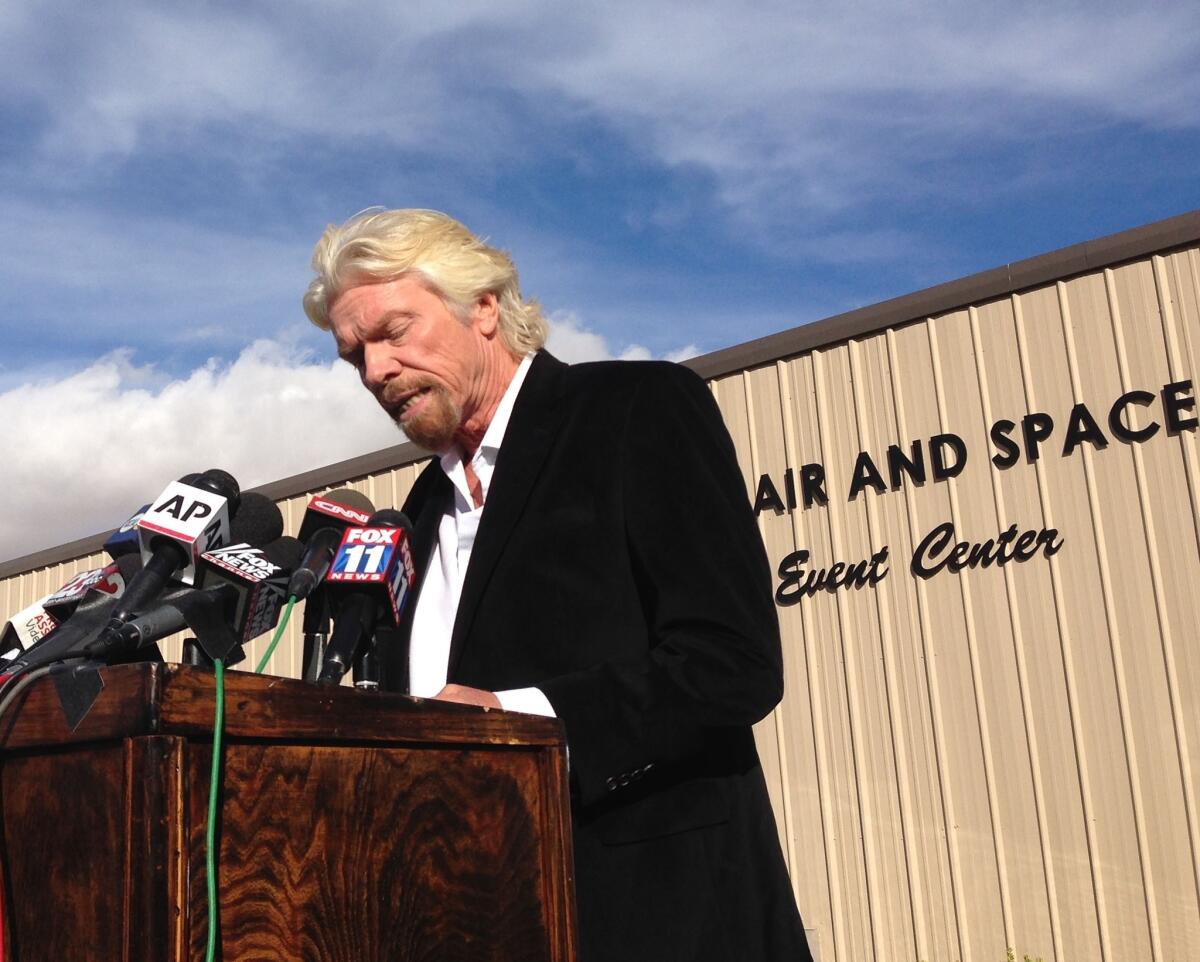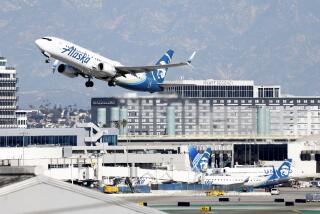After deadly crash, Richard Branson says space travel still worth risk

Billionaire Virgin Galactic founder Richard Branson speaks to reporters in Mojave on Saturday, a day after the crash of his company’s prototype space tourism rocket.
- Share via
Virgin Galactic founder Richard Branson says the company’s space travel program will press on following last week’s crash of one of its spaceships, which killed one pilot and injured another.
In his first live interviews since the crash, Branson hit the morning show circuit Monday, saying space travel is still “absolutely … worth the risks.”
“It’s a grand program which has had a horrible setback,” Branson told “Today” host Matt Lauer, “but I don’t think anybody watching this program would want us to abandon it at this stage.”
He told “CBS This Morning” that after Friday’s accident two people signed up that day for rides to space and paid in full “as a gesture of goodwill.”
Speaking from the British Virgin Islands, Branson called Friday an “incredibly sad” day for the family of pilot Mike Alsbury, who was killed, and the Virgin Galactic team. “But we’ve now picked ourselves up, the team are pushing on building the next spaceship and waiting for the final report from the NTSB.”
The National Transportation Safety Board said late Sunday that Virgin Galactic SpaceShipTwo’s co-pilot changed the spacecraft’s aerodynamic controls prematurely. That move may have caused the tail to rise and create drag — an action called “feathering.” Moments later, the aircraft “disintegrated,” NTSB acting chairman Christopher Hart said.
Using video footage from inside the cockpit as well as telemetry data, investigators found that the co-pilot unlocked the “feathering” handle nine seconds after the rocket engine ignited. This action occurred at speeds of Mach 1 instead of Mach 1.4.
Hart cautioned that “pilot error” was only one possible cause of Friday’s crash in the Mojave Desert. Branson says he has not seen the cockpit video, and is awaiting the final results of the NTSB investigation.
“If it did turn out to be human error, we would obviously still need to make sure that it’s impossible for something like that to happen in the future,” Branson told CBS.
“All of us are determined to continue and make sure that we learn from this and get it right.”
For more breaking news, follow me @cmaiduc
More to Read
Inside the business of entertainment
The Wide Shot brings you news, analysis and insights on everything from streaming wars to production — and what it all means for the future.
You may occasionally receive promotional content from the Los Angeles Times.











